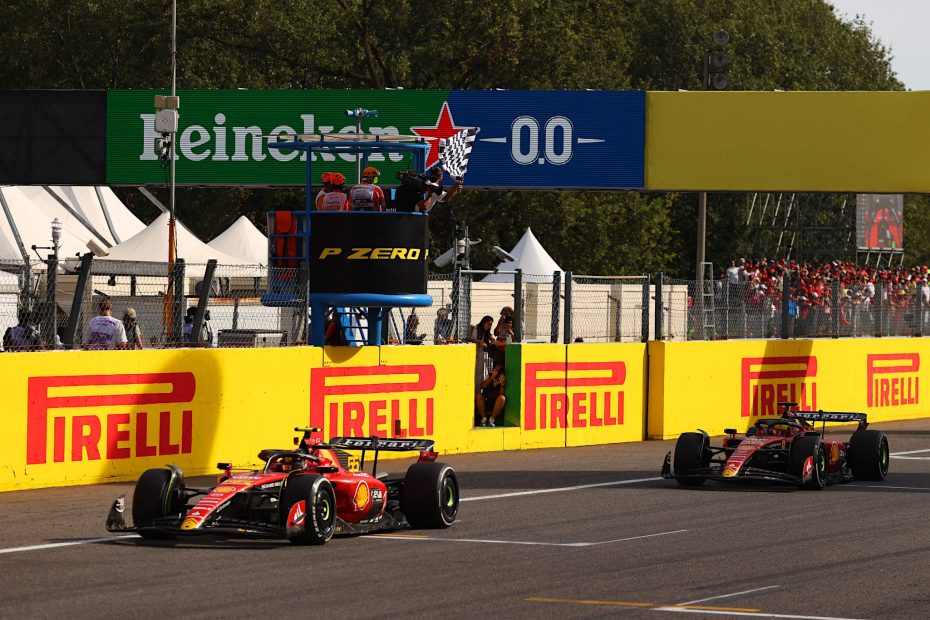A proposal to change Formula One’s current points scoring system came to the fore over the Chinese Grand Prix weekend, with the matter discussed and subsequently put on the backburner during the recent F1 Commission meeting.
The proposed change would see points scored down to 12th place, shifting the post from the current system introduced in 2010 for a 12-team grid, which sees the top ten finishers rewarded.
“It was agreed that further analysis of the proposed changes was required with a view to a proposal to be presented to the F1 Commission meeting in July,” said an FIA statement after the most recent meeting.
The argument for having points to 12th comes off the back of the increased reliability of modern F1 cars and the fact that in 2024, the top five teams on a good day will be locking out the top ten.
That would leave not even a crumb for those fighting for sixth onward in the constructor’s championship.
As it stands after five events this season, there are still three teams yet to score and seven drivers also sitting on zero points.
Something that new Haas team principal Ayo Komatsu lamented in saying that the proposed new system would “be clearer for the fans and then for the motivation of everybody working in a team as well”.
Carlos Sainz and Charles Leclerc. (Photo by Ryan Pierse/Getty Images)
Given how exclusive and precious a commodity scoring an F1 point is, why is it that mediocrity should be rewarded?
Points for finishing 12th would’ve been something the trio of now-defunct teams that entered in 2010 would have benefitted from – yet they brutally faced their fates with neither Hispania nor Caterham née Lotus ever scoring.
“Formula One world championship points must be hard won and treasured. Valued. Not some kind of lucky dip where everyone wins a prize,” was what ex-racer and F1 pundit Martin Brundle wrote on X, formerly known as Twitter.
There is merit in that – even without being seen as having rose-tinted spectacles on.
Again, the ad nauseam adage of teams must simply do better to earn the rewards.
After all, measures such as the cost cap and sliding scale of aerodynamic testing were brought in to allow for a more competitive field. So how many more concessions need to be introduced?
It does feel though as if only rewarding points to 12th is another half-measured attempt from F1 and the FIA.
If Komatsu’s point about making the system clearer for fans and avoiding the undesirable naught on the standings table – then why not award points for all classified finishers?
The start line of the Australian Grand Prix, held in Melbourne.(Photo by Bai Xuefei/Xinhua via Getty Images)
A system that works for championships such as IndyCar and even the Australian Supercars series, where greater peril is placed upon a non-classified result.
Prize money in F1 is, after all, awarded based on finishing position in the constructor’s championship so that won’t change and then one can have the vanity of points next to their name.
Ultimately, the prestige of a top three, top five or even top ten finish will remain.
Sure, you can score a point for finishing 20th, but will that hold the same weight as anything mentioned above?
What it would do, which contradicts the rewarding mediocrity mantra, is give the slightest value to a situation like the wheel-to-wheel battle between Kevin Magnussen and Lance Stroll in Shanghai.
Though, Formula One proverbially has bigger fish to fry at the end of the day.
Sports opinion delivered daily
Since 2010, the current points system has been clear cut and while there are only 20 cars in the field – adding points to twelfth would dilute matters more than say introducing an eleventh team into the mix.
